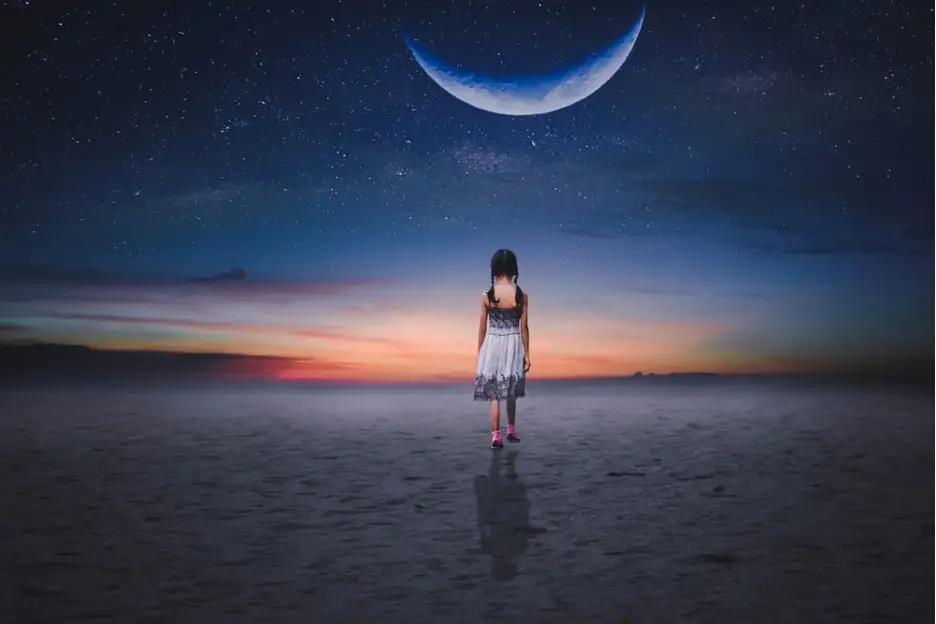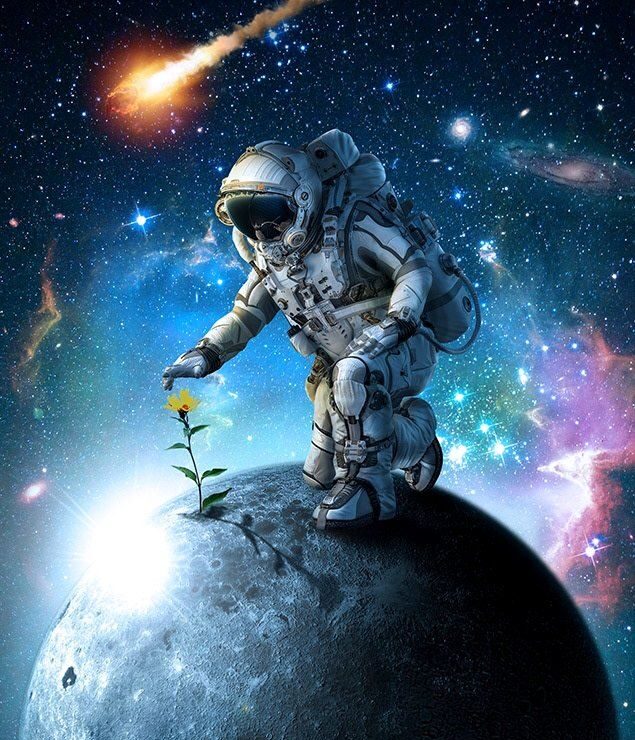Earth Without the Moon: A Cosmic What-If

Do we truly need the Moon in our night sky? What role does it actually play?
If the Moon were to suddenly vanish, the consequences would be severe—triggering a chain of irreversible changes that could dramatically impact life on Earth.
What would happen to Earth’s oceans if the Moon disappeared?
Without the Moon, our oceans would experience significantly smaller tides—only about one-third of their current strength. These tidal movements play a vital role in stirring up oceanic nutrients, which support the health of coastal ecosystems. Many marine creatures—such as crabs, mussels, starfish, and snails—depend on the tides for feeding, reproduction, and survival.
Without healthy coastal ecosystems, the ripple effects could extend across both land and sea, disrupting food chains and potentially leading to mass extinctions.
Tidal movements also play a key role in stabilizing Earth’s climate. They help drive ocean currents that redistribute warm water around the planet, regulating temperatures and weather patterns. Without the Moon’s influence, these currents would weaken, and Earth could experience more extreme and unpredictable climate conditions.
What Would Happen to Animals if the Moon Disappeared?
If the Moon suddenly vanished, many animal species around the world would be thrown into confusion. Predators rely on a delicate balance of darkness and moonlight to hunt effectively at night. With no moonlight at all, it would become harder for these animals to find and track prey, giving prey species a survival advantage. This shift could disrupt food chains, lead to ecological imbalances, and even drive some nocturnal predators toward extinction—similar to the way tides support coastal life, moonlight supports nighttime ecosystems.
What Would Happen to the Seasons if the Moon Disappeared?
Perhaps the most concerning effect of losing the Moon would be the dramatic changes to Earth’s seasons. Our planet’s seasons—spring, summer, autumn, and winter—exist because of Earth’s axial tilt, which sits at approximately 23.5 degrees. The Moon’s gravitational pull helps stabilize that tilt. Without it, Earth’s axis could wobble unpredictably, swinging from no tilt at all (resulting in no seasons) to extreme tilts (bringing severe climate shifts and possibly triggering ice ages). Such instability could make Earth a far less hospitable place for life.


That’s so touching
There’s a contemplative quality in your words, a stillness that feels restorative. They arrive without urgency, offering a rare space for reflection, where the reader is free to linger and discover meaning at their own pace.
архитектурное дизайн бюро дизайнер интерьера
Play at https://elon-casino-top.com online: slots from popular providers, live dealers, promotions, and tournaments. Learn about the bonus policy, wagering requirements, payment methods, and withdrawal times. Information for adult players. 18+. Gambling requires supervision.
Play online at https://elonbet-casino-game.com: slots, live casino, and special offers. We explain the rules, limits, verification, and payments to avoid any surprises. This material is for informational purposes only.
Нужен трафик и лиды? агентство авигрупп в казани SEO-оптимизация, продвижение сайтов и реклама в Яндекс Директ: приводим целевой трафик и заявки. Аудит, семантика, контент, техническое SEO, настройка и ведение рекламы. Работаем на результат — рост лидов, продаж и позиций.
need a video? video production agency in italy offering full-cycle services: concept, scripting, filming, editing and post-production. Commercials, corporate videos, social media content and branded storytelling. Professional crew, modern equipment and a creative approach tailored to your goals.
Продажа тяговых https://faamru.com аккумуляторных батарей для вилочных погрузчиков, ричтраков, электротележек и штабелеров. Решения для интенсивной складской работы: стабильная мощность, долгий ресурс, надёжная работа в сменном режиме, помощь с подбором АКБ по параметрам техники и оперативная поставка под задачу
Продажа тяговых https://ab-resurs.ru аккумуляторных батарей для вилочных погрузчиков и штабелеров. Надёжные решения для стабильной работы складской техники: большой выбор АКБ, профессиональный подбор по параметрам, консультации специалистов, гарантия и оперативная поставка для складов и производств по всей России
Все актуальные адреса на кракен ссылка для безопасного входа обновляются ежедневно администрацией площадки
Продажа тяговых ab-resurs.ru аккумуляторных батарей для вилочных погрузчиков и штабелеров. Надёжные решения для стабильной работы складской техники: большой выбор АКБ, профессиональный подбор по параметрам, консультации специалистов, гарантия и оперативная поставка для складов и производств по всей России
Продажа тяговых faamru.com аккумуляторных батарей для вилочных погрузчиков, ричтраков, электротележек и штабелеров. Решения для интенсивной складской работы: стабильная мощность, долгий ресурс, надёжная работа в сменном режиме, помощь с подбором АКБ по параметрам техники и оперативная поставка под задачу